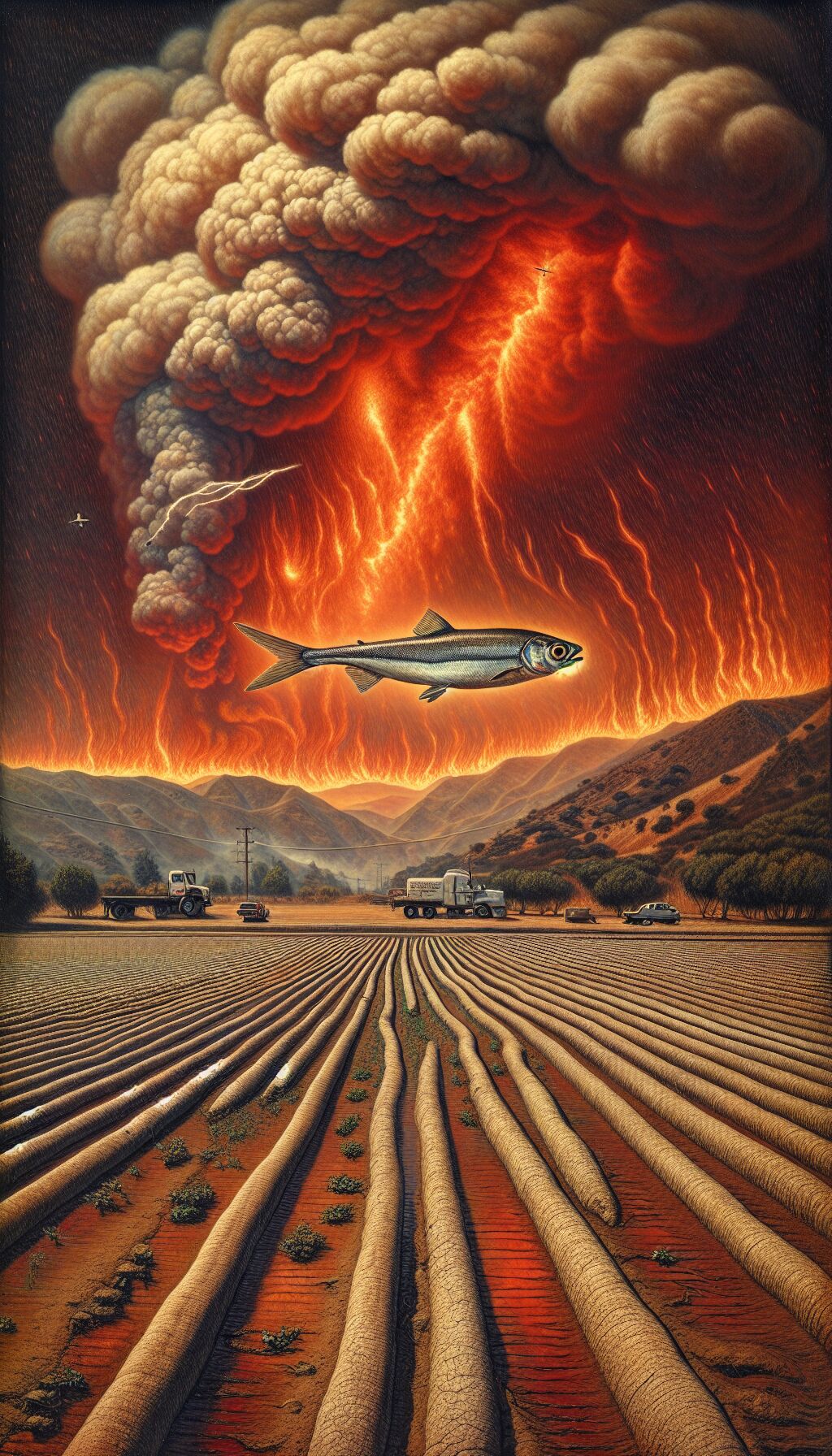Political Blame Game: Wildfires, Water Management, and California’s Leadership
As California grapples with devastating wildfires, an incendiary debate has erupted over the responsibility for the tragedies, largely fueled by President-elect Donald Trump’s accusations directed toward California Governor Gavin Newsom. Trump criticized Newsom for prioritizing the conservation of an endangered fish species over the urgent water needs of California residents amid the state’s ongoing wildfire crisis.
The Drought of Accountability
Trump has long leveraged water management as a political weapon against California’s Democratic leadership. During his campaign and throughout his presidency, he spotlighted the state’s water allocation policies, claiming that environmental regulations disproportionately prioritize ecological concerns over human needs. Central to these discussions is the contentious issue of water sourced from the Sacramento and San Joaquin Rivers, critical lifelines for the state’s agriculture and urban plans.
In his latest tirade, Trump took to social media, declaring, “Governor Newsom is focused on protecting an essentially worthless fish rather than the water needs of Californians.” His remarks echoed sentiments previously expressed in an October interview with podcaster Joe Rogan, where he pointed to parched farmland in the central valley and questioned the rationale behind environmental policies that restrict water flow to agrarian areas.
“Because the water isn’t allowed to flow down. And in order to protect a tiny little fish, millions and millions of gallons of water gets poured into the Pacific Ocean,” he asserted.
Environmental Conflicts and Court Battles
At the heart of the conflict is the endangered fish known as the smelt, which relies on the health of the delta ecosystem. Newsom’s administration has faced Trump’s narratives in court, successfully arguing that diverting water away from the rivers could jeopardize these fragile species, thus igniting further political controversy.
The governor has made significant efforts to maintain flow conditions in the delta, even at the cost of water that could otherwise support agricultural and urban demands. Rather than redirecting potentially useful stormwater to thirsty regions, California has established programs aimed at supporting the habitat of the smelt, an approach Trump and his allies view as an example of mismanagement.
The Human Toll of Wildfires
As this political blame game unfolds, California’s wildfires have wreaked havoc across the state, resulting in the loss of life and homes. Recent reports indicate that wildfires have claimed at least five lives and forced countless residents to flee their properties. The Palisades Fire has emerged as a particularly devastating incident, scorching over 17,000 acres—an area greater than the size of Manhattan and causing damages estimated in the tens of billions of dollars.
Compounding the crisis has been alarming reports that firefighters are struggling with water shortages while battling blazes. Eyewitness accounts and criticisms from local leaders highlighted inefficiencies in city management, including a situation where critical hydrants were dry during firefighting efforts.
“There’s no water in the Palisades. This is an absolute mismanagement by the city. Not the firefighters’ fault, but the city’s,” stated billionaire developer Rick Caruso, who challenged Mayor Karen Bass in the last election.
Official Responses and Counterarguments
In response to Trump’s comments, Newsom’s office has vehemently defended the state’s management by stating that his accusations conflate separate issues. The governor’s office assured that Southern California is not experiencing a water shortage, despite Trump’s assertions.
Officials explained that water supply dynamics involve more than just the availability of unallocated supply. They pointed out that high demand was causing operational limitations at pump stations, leading to challenges in replenishing tanks at higher elevations. This operational complexity has been exacerbated by ongoing fires, which obstruct access for rescue crews.
Continued Firefighting Efforts
Despite the challenges posed by inadequate water supplies, firefighters have begun to make progress against the blazes. Reports confirmed that efforts to extinguish fires in the Hollywood Hills were successful enough to lift the evacuation order in certain areas. However, the situation remains critical, with many wildfires only partially contained as they continue to threaten lives and property.
As California continues to battle these fierce wildfires amidst escalating political rhetoric, the focus must transition from blame to collaborative solutions aimed at addressing the intertwined challenges of water management, environmental preservation, and public safety.
Conclusion: Bridging Divides Through Cooperation
As the state seeks to navigate the dual crises of environmental conservation and public safety, it is imperative that political leaders emphasize cooperation over division. The stakes have never been higher, and the devastating impacts of wildfires — intensified by climate change and management complexities — leave little room for partisan indifference. A concerted effort to bring all stakeholders to the table could foster meaningful dialogue about California’s future regarding both its water resources and environmental heritage.
Amidst the fires, a reminder rings true: It is not the fish versus the people but rather a shared responsibility to safeguard the state and its inhabitants from the flames of both wildfire and political strife.
